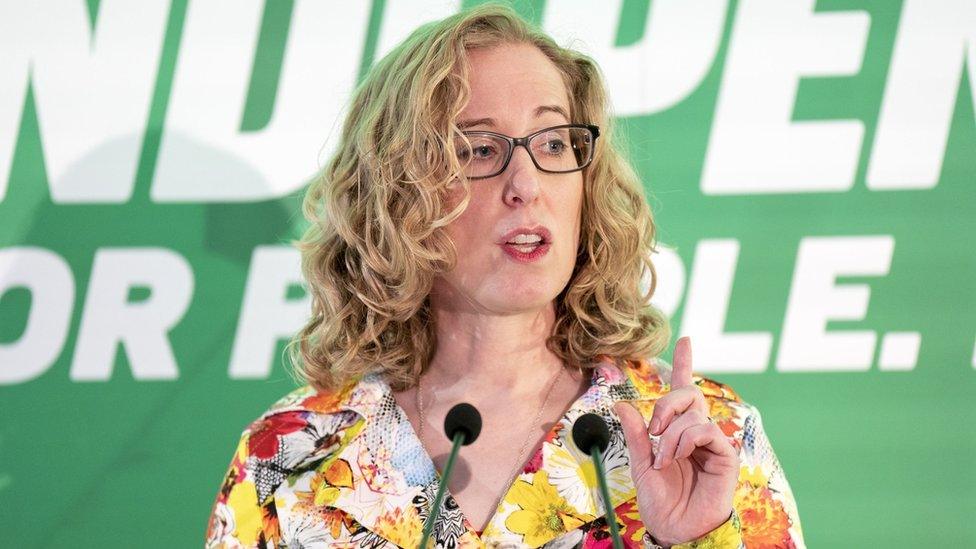Jack says PM should not backtrack over deposit return scheme
- Published
In an interview on the BBC's The Sunday Show, Mr Jack strongly defended the UK government's position
Scottish Secretary Alister Jack has said the UK government should not change its position on Scotland's deposit return scheme (DRS).
UK ministers have made the exclusion of glass a condition of their support.
First Minister Humza Yousaf has said the scheme is in jeopardy if the UK government does not make the necessary concessions.
Mr Yousaf has written to Prime Minister Rishi Sunak, asking him to include glass, and wants a response by Monday.
He told BBC Scotland this deadline was "effectively" an ultimatum.
The UK government wrote to the Scottish government last week granting a partial exemption to the Internal Market Act which would exclude glass containers from the DRS - which is due to go live in Scotland in March next year.
Glass has been excluded mainly because the UK government said deposit return schemes should be consistent across the UK.
Mr Yousaf has urged a rethink from the UK government, citing concerns from businesses.
In his letter to Mr Sunak, the first minister said: "The removal of glass fundamentally threatens the viability of Scotland's DRS with reduced revenue for the scheme administrator.
"Removing glass will also have a significant impact on business."
He also said that, apart from threatening jobs and investment, excluding glass would also put companies at a competitive disadvantage.
In an interview on the BBC's The Sunday Show, Mr Jack strongly defended the UK government's position.
"We've given the exclusion and there are four conditions in that exclusion which allow the schemes to work across the United Kingdom," he said.

The DRS would see customers given money back by returning empty bottles
He said there would be a single bar code system and membership of just one scheme would be needed instead of multiple schemes so there would be no extra costs.
He added that having no glass in the scheme "makes sense" as "that's what industry have asked us to do".
"I haven't had a single letter from a business supporting the proposed scheme that Lorna Slater brought forward whereas I have had over 1,000 letters of concern," he said. "And it's those concerns that we've taken into account when we've come to our conclusion because we believe the deposit charge should be the same and reciprocated across the UK.
"If I get off the train in Carlisle and buy some recyclable material and it's 10p in Carlisle and 20p in Dumfries I double my money. That makes no sense."
Mr Jack added: "You have to protect internal markets and not have disruption to the drinks industry. French wine producers have told us they wouldn't be relabelling just for Scotland for glass. It was too small a market so they would sell their wine elsewhere."
He added that the British Glass Industry had written to the UK government saying the glass was not recycling glass and that Circularity Scotland [the administrator of the scheme] was going to crush it and put it into roads, adding that it should instead be melted and recycled into bottles.
However, this was later disputed by Circularity Scotland which said the aggregate claims were "totally inaccurate".
The organisation, which represents drinks producers, retailers and trade bodies who are backing the DRS scheme, said it had set a high target for remelting glass so it could be reused to make new drinks containers.
A spokesman said: "Circularity Scotland has consistently stated that the Scottish Deposit Return Scheme has set a target of 90% for the remelting and reuse of glass from the scheme's launch, rising to 95% post-launch. Any claims to the contrary are totally inaccurate.
"These claims have seriously jeopardised a £10m investment in glass recycling planned for Scotland's Deposit Return Scheme."
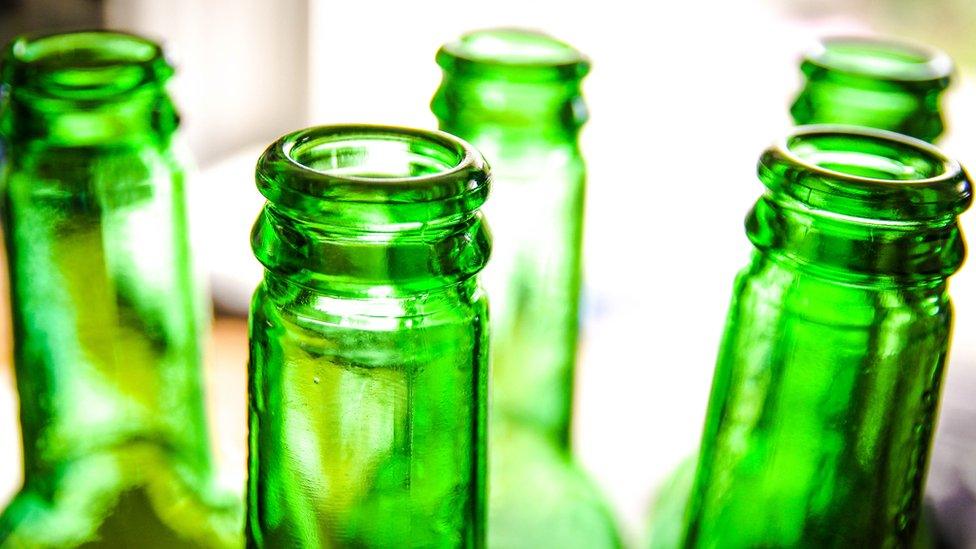
The Scottish government wants to include glass bottles in its plans
The Scottish secretary also said there were issues with contamination because if a bottle was broken and had a shard of less than 10mm, it would contaminate all the recyclable material in the bin and it would have to go to landfill.
Mr Jack said the UK government had listened to the drinks industry, including the Scotch Whisky Association which said having glass in the scheme would cost it jobs.
In his letter to the prime minister, Mr Yousaf had cited concerns raised by C&C Group - one of the country's biggest brewers and the company behind Tennent's Lager - but, in correspondence Mr Jack received from the firm, seen by the BBC, the company said it had been "misrepresented".
'Competitive disadvantage'
Reading a section of the letter, Mr Jack said: "Please find enclosed the letter we sent to Humza Yousaf, Scotland's first minister, setting out our position following last weekend's UK Internal Market announcement.
"Regrettably, specific passages of this letter were leaked to the media misrepresenting C&C's position on DRS.
"C&C Group/Tennent's is actively seeking and supports a UK-wide scheme introduced at the same time across the four UK nations."
The letter went on to say that the removal of glass would leave the company at a "competitive disadvantage with the rest of the UK" and the firm "cannot therefore support a stand-alone Scottish DRS that excludes glass".
Circularity Scotland previously urged the UK and Scottish governments to "get round the table" to deliver the programme.
It said it had invested about £300m to develop the deposit return scheme.


Scottish Secretary Alister Jack's comments can be taken to mean the UK government will not agree to what Humza Yousaf described to the BBC as an "effective" ultimatum.
Mr Yousaf wants the UK government to allow glass bottles to be part of the Deposit Return Scheme and wants them to agree to this by Monday. He says he struggles to see how it can go ahead otherwise.
The Scottish government is expected to decide on the future of the scheme this week.
But as things now stand, it would seem there is very little prospect of it going ahead next March as planned.
Supporters of the Scottish government will present the UK government's position as an attack on devolution and the powers of Holyrood.
The issue will be less the rights and wrongs of the scheme itself - and more the principle that a scheme backed by a majority of MSPs cannot go ahead.
The UK government, on the other hand, would also mount a strong argument.
It would argue it is listening to the concerns of businesses about the scheme and ensuring there are no barriers to trade within Britain.
This increasingly feels like a story about constitutional politics rather than the rights and wrongs of the Deposit Return Scheme itself.
- Published3 June 2023
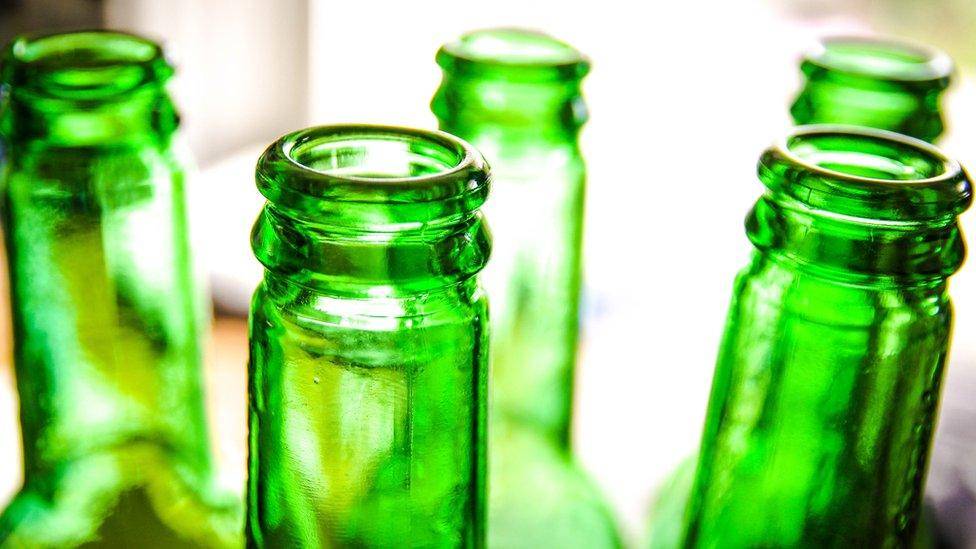
- Published1 June 2023

- Published5 June 2023
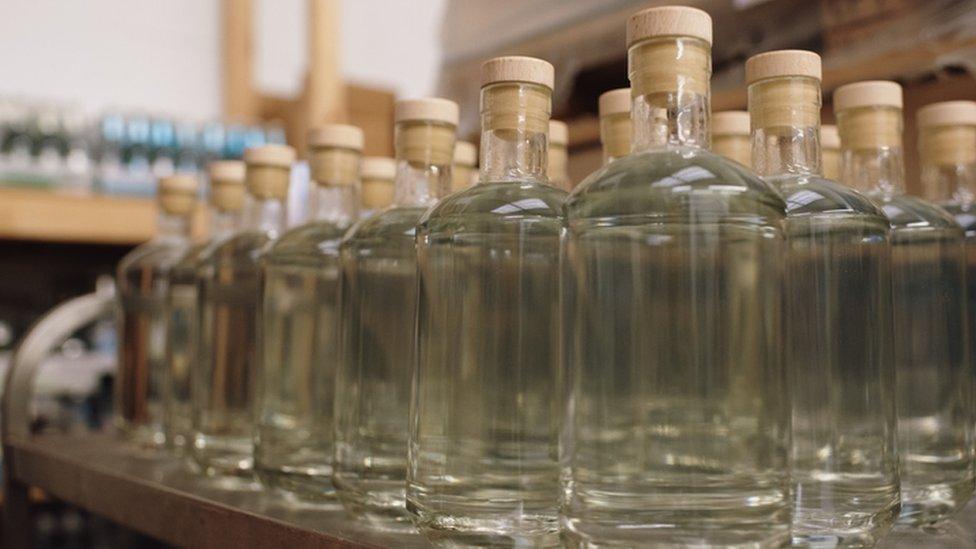
- Published31 May 2023
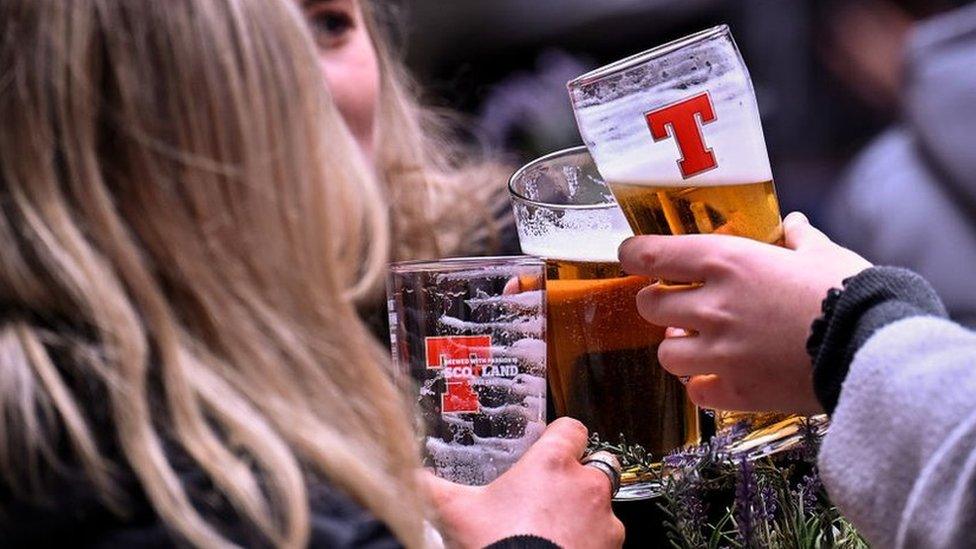
- Published30 May 2023
